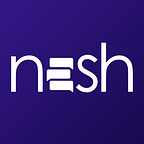If Search Engines Could Talk
You might remember the sales associate who walks around Macy’s and asks you if you need help with anything. I usually respond with, “I am just looking. Thank you” and move on. But if you did speak with them, this is how the conversation might go —
“Yes, please! Can you help me find some shirts.”
“Yeah, dress shirts.”
“Well I prefer darker colors.”
“Do you have any french cuffs?”
“Well actually can I see that one in a light color.”
And this keeps going until they help you locate the shirt you like.
Now imagine repeating the same process, but instead, you use Google to look up some shirts for you. Google shows some ads and gives you a list of links. It doesn’t ask you any follow-up questions, but instead, gives you 4 billion links to choose from. This Web Search experience is very different from the human search experience with the Sales Associate.
The Google Assistant isn’t much help either in this scenario. It's more conversational than the search engine, but there is no way to further refine the results by asking a follow-up question.
If we go to the basics real quick, Search engines can be one of two types —
- Web
- Enterprise
Web search is what we typically use every day (Google, Bing) to search the entire internet. Enterprise Search (Algolia) is what we use inside our companies to search through a focused and finite data set within a company’s network. But both of these Search engines are quite transactional. The user asks for something specific and the engine delivers the results. There are no intermediate steps before the results are delivered and there are no follow-ups after the results are delivered.
If search engines could talk, they could do a lot more. ‘Talk’ is a broad term, but what we mean by that is if the search engines could hold a natural conversation with the human and be less transactional and more conversational, a lot more is possible —
- Ask the user for clarification if the original request was too broad and provide narrower, higher quality results
- Understand a follow-up request to be a continuation of the original request
- Personalize the experience for every user and provide better results tailored to them
- Recommend next question(s) that the user can ask
This is especially useful for Enterprises, who have a large but finite amount of information to search through. The stakes for knowledge discovery are higher and the information being searched for is technical in nature.
Conversational Search and Nesh
We considered all of these possibilities when we started building the search capabilities in Nesh. Nesh had always been Conversational so we built on that fundamental quality to develop her new skill sets.
Disambiguation — Clarify when something is not clear
If you ask an open-ended question that can generate vague results, Nesh will come back and ask you to be more specific. These specific options are generated from the data sources that Nesh has been connected to and dynamically adjusts based on the user’s previous selections.
Even if your question is specific, Nesh will try and double-check if you want to look into something a bit more pointed. Her goal is to provide you with the exact answer and not just a multitude of options.
Carry Context — Understand a follow-up request to be a continuation of the original request
If you ask a question and then ask another question, the search platform should be able to tell if this is a continuation of the previous question or a new unrelated question. Here we see disambiguation happen on the first step where Nesh asks to specify the data frequency. Then context carry happens on the next step where Exxon is appended while persisting all the previous choices.
Another example of context carry is where the same question doesn’t need to be repeated, and Nesh is able to figure out that it needs to look at the climate change data for another company.
Conversational search can enable enterprises to more effectively interact with their data and proceed with the confidence that they have the right information driving their strategy.
To help businesses more effectively interact with their data, Nesh has built a Conversational AI Platform for Search and Analytics designed to find answers to your technical and business questions 10x faster via the power of Natural Language Processing.
To find out more on how Nesh can help your team go to —
To create a free account, sign up at —
